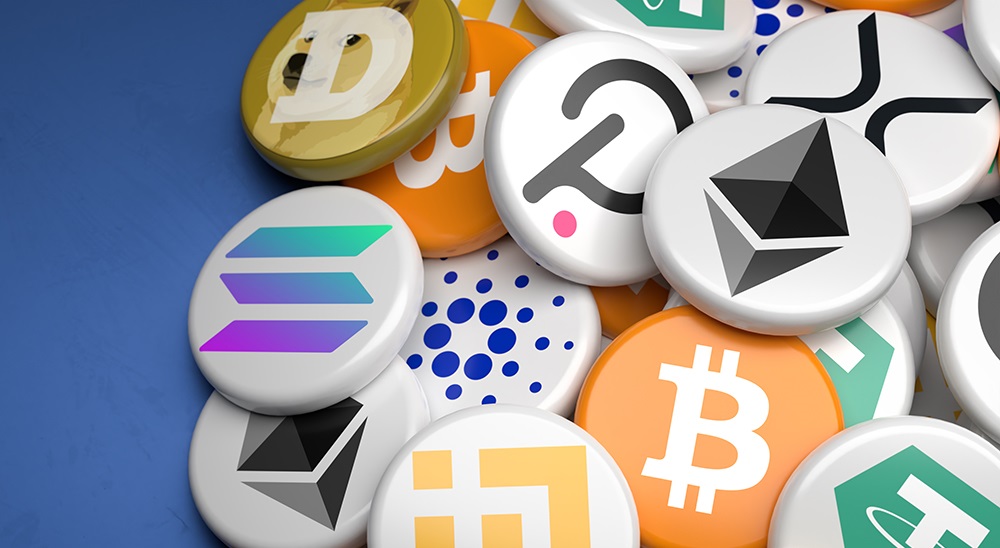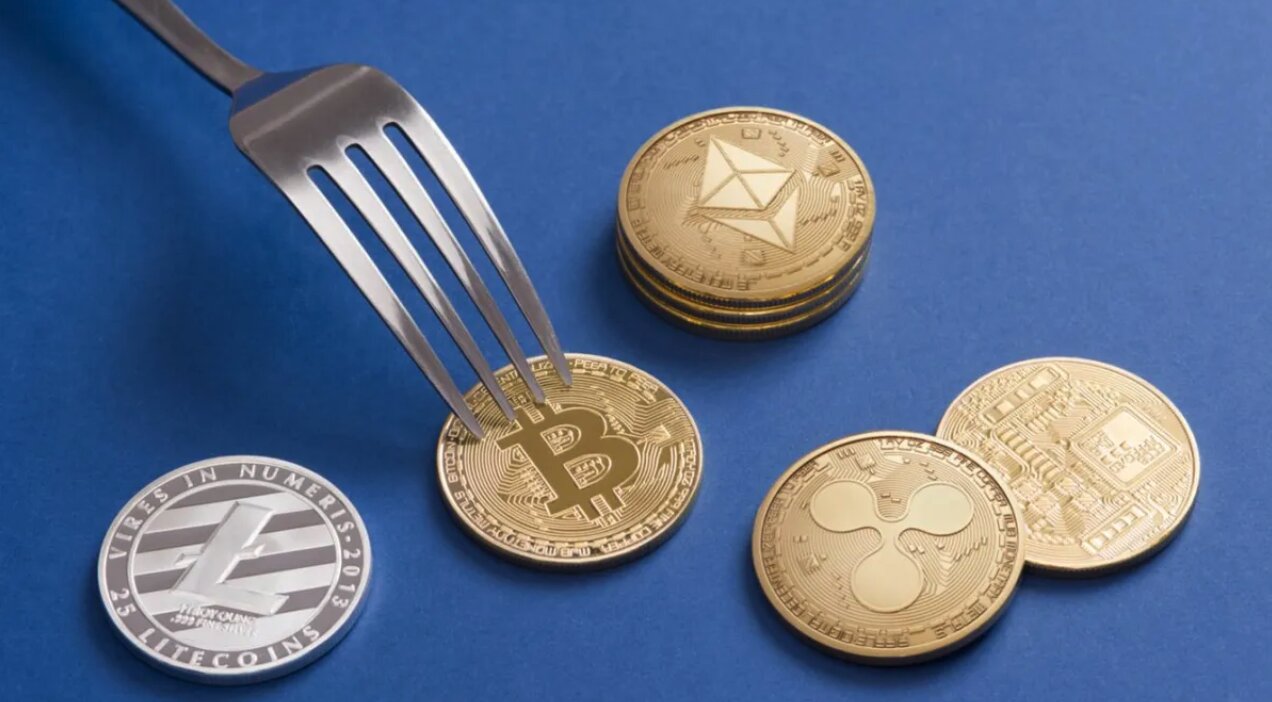Introduction
Welcome to the world of cryptocurrencies! With the rise in popularity of digital currencies, investors and enthusiasts are spoilt for choice when it comes to selecting the right cryptocurrency for their needs. Among the top contenders in the market, three cryptocurrencies stand out: Bitcoin, Ethereum, and Litecoin. Each of these cryptocurrencies has its own unique features and advantages, making it crucial for individuals to understand the differences before making an investment decision.
Bitcoin, the first and most well-known cryptocurrency, was created in 2009 by an anonymous person or group of people using the pseudonym Satoshi Nakamoto. Known for its decentralized nature, Bitcoin operates on a peer-to-peer network, bypassing traditional financial institutions. It has gained widespread acceptance and is recognized as a viable digital currency for transactions.
Ethereum, on the other hand, is not just a cryptocurrency but also a platform that utilizes blockchain technology. Created by Vitalik Buterin in 2015, Ethereum allows the development and execution of decentralized applications (DApps) and smart contracts. This versatility has made Ethereum a popular choice among developers and businesses looking to build on a blockchain platform.
Litecoin, introduced in 2011 by Charlie Lee, is often referred to as the silver to Bitcoin’s gold. It was designed to be similar to Bitcoin but with some notable differences, such as faster transaction times and a different hashing algorithm. Litecoin has gained traction as a reliable cryptocurrency for everyday transactions, thanks to its lower transaction fees and efficient network.
In this article, we will delve deeper into the features and characteristics of Bitcoin, Ethereum, and Litecoin to help you make an informed decision about which cryptocurrency may be best suited to your needs. We will compare their performance, transaction speed, scalability, security, and use cases, among other factors. By the end of this article, you will have a clearer understanding of the strengths and weaknesses of each cryptocurrency, enabling you to make a well-educated choice.
Bitcoin
Bitcoin is the pioneer in the world of cryptocurrencies, often referred to as digital gold. It operates on a decentralized peer-to-peer network, allowing for secure and direct transactions without the need for intermediaries like banks.
One of the key features of Bitcoin is its limited supply. There will only ever be 21 million bitcoins in existence, making it a deflationary asset. This scarcity has contributed to its value appreciation over time and has attracted many investors looking for an alternative store of value.
Bitcoin transactions are verified and recorded on the blockchain, a public ledger that ensures transparency and security. The blockchain technology behind Bitcoin has proven to be highly secure, making it difficult for hackers to manipulate transaction records.
However, Bitcoin’s scalability has been a point of contention. As the network has grown, it has faced challenges in processing a large number of transactions quickly and efficiently. This has led to slower confirmation times and higher transaction fees during periods of high demand.
Despite these challenges, Bitcoin remains the most recognized and widely accepted cryptocurrency. It has gained mainstream adoption, with major companies accepting Bitcoin as a form of payment. Additionally, the emergence of Bitcoin futures and investment vehicles has further solidified its position in the financial markets.
Bitcoin’s use cases range from being a digital currency for everyday transactions to a long-term investment asset. It has proven to be a hedge against inflation and a means of diversification within investment portfolios.
In summary, Bitcoin’s decentralized nature, limited supply, and wide acceptance make it an attractive choice for those looking for a secure and established cryptocurrency. However, its scalability issues and potential for high transaction fees should be taken into consideration before making an investment decision.
Ethereum
Ethereum is more than just a cryptocurrency—it is a robust blockchain platform that has revolutionized the world of decentralized applications and smart contracts. Created by Vitalik Buterin, Ethereum provides developers with a powerful platform to build and deploy their own decentralized applications (DApps) and execute smart contracts.
One of the key features that sets Ethereum apart is its ability to execute smart contracts. Smart contracts are self-executing contracts with the terms of the agreement directly written into code. They automatically execute when predetermined conditions are met, eliminating the need for intermediaries and increasing transparency and efficiency.
Ethereum’s native cryptocurrency, called Ether (ETH), is used to power the operations on the Ethereum network. It acts as a fuel for transactions and computational tasks, making it an essential element in the interaction with DApps.
Ethereum’s flexibility and programmability have led to a wide range of use cases. It has been adopted by various industries, including finance, gaming, supply chain management, and decentralized finance (DeFi). The ability to create new tokens and launch initial coin offerings (ICOs) has also made Ethereum popular among startups as a means of raising funds.
However, Ethereum has faced its own set of challenges. The platform is currently undergoing a transition from Proof of Work (PoW) to Proof of Stake (PoS) consensus mechanism, known as Ethereum 2.0. This upgrade aims to address scalability issues, reduce energy consumption, and improve network security.
Despite these challenges, Ethereum continues to be one of the most innovative and widely used blockchain platforms. Its vibrant developer community and vast ecosystem of DApps make it a hub for creating and exploring new decentralized solutions.
In summary, Ethereum’s ability to execute smart contracts and support decentralized applications has positioned it as a leading platform for blockchain innovation. However, its ongoing scalability challenges and the transition to Ethereum 2.0 should be considered when evaluating its potential for long-term success.
Litecoin
Litecoin, often referred to as the silver to Bitcoin’s gold, was introduced in 2011 by Charlie Lee. Like Bitcoin, Litecoin is a decentralized cryptocurrency that operates on a peer-to-peer network. However, it offers some key differences that make it a unique and attractive option.
One of the main advantages of Litecoin is its faster block generation time. While Bitcoin takes around 10 minutes to generate a new block, Litecoin processes blocks every 2.5 minutes. This faster block time allows for quicker transaction confirmations, making Litecoin a preferred choice for those seeking faster transaction speed.
Litecoin also employs a different hashing algorithm than Bitcoin. While Bitcoin uses the SHA-256 algorithm, Litecoin utilizes Scrypt. This algorithm shift has made Litecoin resistant to ASIC mining, meaning that it is more accessible for individual miners using regular computer hardware.
Another notable feature of Litecoin is its relatively low transaction fees. The network is designed to handle a larger number of transactions, resulting in lower fees compared to Bitcoin. This affordability makes Litecoin a practical option for everyday transactions and micro-payments.
As with other cryptocurrencies, Litecoin has faced scalability challenges. While its faster block time allows for more transactions to be processed, it can still experience congestion during periods of high demand. However, efforts to implement solutions like the Lightning Network have the potential to enhance the scalability of Litecoin’s network.
Litecoin has gained acceptance among merchants, online platforms, and payment processors as a means of payment. Its widespread adoption and stable network have positioned it as a reliable cryptocurrency for everyday use.
In summary, Litecoin’s faster transaction speed, lower fees, and accessibility for individual miners distinguish it from other cryptocurrencies. Its focus on being a practical and efficient digital currency has earned it a loyal user base and made it a viable option for everyday transactions.
Comparison of Bitcoin, Ethereum, and Litecoin
When considering Bitcoin, Ethereum, and Litecoin, it is important to evaluate their key features and characteristics to make an informed decision. Here’s a comparison of these three popular cryptocurrencies:
- Scalability: Bitcoin faces challenges in scalability, with slower confirmation times and higher transaction fees during peak periods. Ethereum is also dealing with scalability issues, but its transition to Ethereum 2.0 aims to address these concerns. Litecoin, with its faster block generation time, offers quicker transaction confirmations and lower fees.
- Use Cases: Bitcoin is widely recognized as a digital store of value and an alternative investment asset. It has gained acceptance as a form of payment in various industries. Ethereum’s versatility allows for the development of decentralized applications (DApps) and the execution of smart contracts, making it attractive for developers and businesses. Litecoin, with its faster transaction speed and lower fees, is well-suited for everyday transactions.
- Network Security: Bitcoin, Ethereum, and Litecoin benefit from the security provided by blockchain technology. Bitcoin’s blockchain is the most established and has proven to be highly secure. Ethereum’s transition to Proof of Stake through Ethereum 2.0 aims to enhance network security. Litecoin’s implementation of the Scrypt algorithm has made it resistant to ASIC mining.
- Developer Community and Ecosystem: Bitcoin has a large and established developer community, along with a wide array of wallets, exchanges, and investment vehicles. Ethereum’s vibrant developer community has resulted in a vast ecosystem of DApps and innovative projects. Litecoin’s community is smaller in comparison but still actively contributes to the development and adoption of the cryptocurrency.
- Market Capitalization: Bitcoin holds the largest market capitalization among the three, followed by Ethereum and Litecoin. Bitcoin’s dominance in the market highlights its established position and recognition as the leading cryptocurrency.
It is essential to consider these factors and determine which aspects align with your goals and requirements. Whether you prioritize secure and stable value storage, decentralized application development, or efficient everyday transactions, understanding the strengths and weaknesses of Bitcoin, Ethereum, and Litecoin will help you make an informed decision.
Factors to Consider when Choosing Bitcoin, Ethereum, or Litecoin
Choosing between Bitcoin, Ethereum, and Litecoin requires careful consideration of various factors. Here are some key factors to keep in mind when making your decision:
- Investment Strategy: If you are primarily looking for a store of value or an investment asset, Bitcoin may be a suitable choice. Its position as the first and most recognized cryptocurrency, along with its limited supply, has contributed to its value appreciation over time. Ethereum, with its focus on smart contracts and decentralized applications, may appeal to those interested in supporting innovative blockchain projects. Litecoin’s faster transaction speed and lower fees make it suitable for daily transactions or micro-payments.
- Technology and Use Cases: Consider the specific features and use cases of each cryptocurrency. Bitcoin is primarily used as a digital currency, allowing for secure and decentralized transactions. Ethereum is renowned for its smart contract functionality and infrastructure for building decentralized applications. Litecoin, with its focus on fast transactions and low fees, is well-suited for everyday use.
- Scalability: Evaluate the scalability of each cryptocurrency and how it aligns with your needs. Bitcoin and Ethereum have faced scalability challenges, leading to slower transaction confirmations and higher fees during peak periods. Litecoin’s faster block generation time allows for quicker transaction confirmations and lower fees.
- Market Acceptance: Consider the level of acceptance and adoption of each cryptocurrency. Bitcoin has gained widespread acceptance as a form of payment, with major companies and merchants now accepting it. Ethereum’s versatility has attracted a strong user base and a vibrant developer community. While Litecoin may not have the same level of acceptance as Bitcoin or Ethereum, it is still recognized and used by various merchants and payment processors.
- Security: Cryptocurrency security is paramount. Bitcoin’s blockchain, being the oldest and most established, has proven to be highly secure. Ethereum’s ongoing transition to Ethereum 2.0 aims to enhance network security and scalability. Litecoin’s implementation of the Scrypt algorithm has made it resistant to ASIC mining, contributing to its network security.
- User Experience: Consider the user experience associated with each cryptocurrency. Look into the availability of user-friendly wallets, exchanges, and digital payment platforms that support the specific cryptocurrency you are interested in. Bitcoin, being the most widely recognized, has a greater availability of such services compared to Ethereum and Litecoin.
Considering these factors will help you align your choice of cryptocurrency with your goals, investment strategy, and intended use. It is important to conduct thorough research and stay informed about the latest developments in the cryptocurrency space to make an informed decision.
Conclusion
Choosing the right cryptocurrency among Bitcoin, Ethereum, and Litecoin requires careful consideration of various factors. Each cryptocurrency has its own unique features and advantages, making it crucial to assess your goals, investment strategy, and intended use before making a decision.
Bitcoin, as the first and most recognized cryptocurrency, offers a secure and decentralized medium of exchange. It remains a popular choice for those seeking a store of value and an alternative investment asset. Ethereum, with its versatile blockchain platform, allows for the development of decentralized applications and execution of smart contracts. It appeals to users interested in supporting innovative projects and participating in the decentralized finance ecosystem. Litecoin, on the other hand, stands out with its faster transaction speed, lower fees, and focus on everyday transactions.
Other factors to consider include the scalability challenges each cryptocurrency faces, the level of market acceptance and adoption, the security of their respective networks, and the overall user experience. It is important to evaluate these factors and determine which aligns best with your goals and requirements.
Ultimately, the choice between Bitcoin, Ethereum, and Litecoin should be based on careful research, an understanding of the technology, and consideration of your own preferences and needs. It is also important to stay informed about the latest developments and advancements in the cryptocurrency space, as this rapidly evolving market can significantly impact the performance and value of these digital assets.
Whatever cryptocurrency you choose, remember to approach your investment with caution and only invest what you can afford to lose. Cryptocurrencies are highly volatile assets, and their value can fluctuate dramatically. As with any investment, it is advisable to consult with a financial advisor and do your own due diligence before making any investment decisions.
With the information and insights gained from this article, you are now equipped to make a well-informed decision regarding Bitcoin, Ethereum, or Litecoin, and embark on your journey into the world of cryptocurrencies.

























